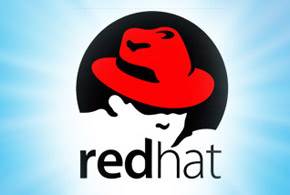Red Hat debuts a new tool for simplifying cloud installation as well as a new cloud platform, RHOSP 9.
In a bid to help make it faster and easier for organizations to deploy their own private cloud, Red Hat announced the QuickStart Cloud Installer on Sept. 14. The new installer follows Red Hat’s OpenStack Platform 9 release, which became generally available on Aug. 31.
Red Hat has released various installation tools and methods available for its cloud technologies in recent years. But the QuickStart Cloud Installer (QCI) is somewhat different in that it can help an organization install multiple technologies from the Red Hat Cloud Suite, including OpenStack, CloudForms, OpenShift and Red Hat Virtualization.
For more than a decade, Red Hat’s core installation tool for its Enterprise Linux platform has been the open-source Anaconda program. Lars Herrmann, general manager of Integrated Solutions Business Unit at Red Hat, said QCI is a modular plugin-based architecture built on top of not Anaconda, but Satellite, Red Hat’s system management technology.
By using Satellite as the base, both content management and system provisioning capabilities are enabled for QCI, according to Herrmann. QCI makes use of existing product installation APIs and installer technologies for orchestrating deployments rather than replacing them, he added.
“For instance, QCI utilizes OpenStack Director to orchestrate the actual deployment of the OpenStack nodes instead of directly provisioning them from QCI,” Herrmann said. “The goal of the QCI project was aimed at simplifying provisioning and post-configuration of private cloud infrastructures by orchestrating installation workflow across different products.”
As such, instead of installing each product in the suite separately, QCI enables provisioning of private cloud infrastructures using a single web-based graphical user interface, eliminating the need to switch between different installation interfaces. The code for QCI is all open-source and is available upstream in GitHub from the Fusor project, Herrmann said.
While QCI is intended to make it faster and easier for Red Hat customers to get up and running with a cloud suite deployment, it doesn’t yet support the most recent release of Red Hat’s OpenStack Platform (RHOSP). As of QCI’s release date on Sept. 14, only Red Hat OSP 8 is supported and not the newer OSP 9 update that was released on Aug. 31. Herrmann said the lack of OSP 9 support in QCI is the result of a simple timing issue.
“When QCI 1.0 was under development, OSP 9 was not yet available to be integrated,” he said. “Support for OSP 8 has been included in the initial release, with plans to add support to RHOSP 10 in the next release of QCI.”
Also of note is the fact that QCI is not a tool for ongoing updates of a cloud environment and isn’t capable of upgrading an existing deployment. QCI is a tool for the initial deployment of cloud technology and it does not have visibility into the infrastructure after the deployment is finished, Herrmann said.
RHOSP 9
With the RHOSP 9 platform that became generally available on Aug. 31, Red Hat is aligned with the OpenStack Mitaka release that first debuted in April of this year. Among the elements that RHOS9 includes are improved live migration capabilities.
In addition, RHOSP 9 includes the Gnocchi OpenStack project, providing additional monitoring capabilities for the OpenStack ceilometer monitoring component.
“Gnocchi is a new time series back end for ceilometer that stores data in either Ceph or Swift that provides high-performance collection and queries of user metrics, which makes it highly scalable,” Radhesh Balakrishnan, general manager of OpenStack at Red Hat, told eWEEK.
While RHOSP 9 is based on the OpenStack Mitaka release, the next major milestone for OpenStack dubbed “Newton” is set to debut the week of Oct. 3.
“We believe that Newton is shaping up to be a great release, based on features and functionality,” Balakrishnan said. “Our engineering teams are actively productizing at this time, with plans to release a production-ready Red Hat OpenStack Platform 10 very soon.”
Sean Michael Kerner is a senior editor at eWEEK and InternetNews.com. Follow him on Twitter @TechJournalist.






